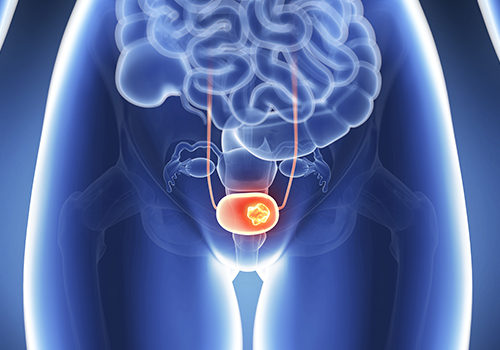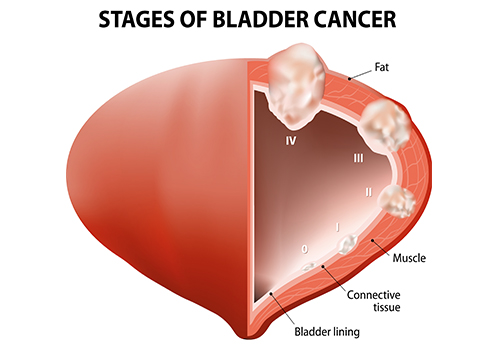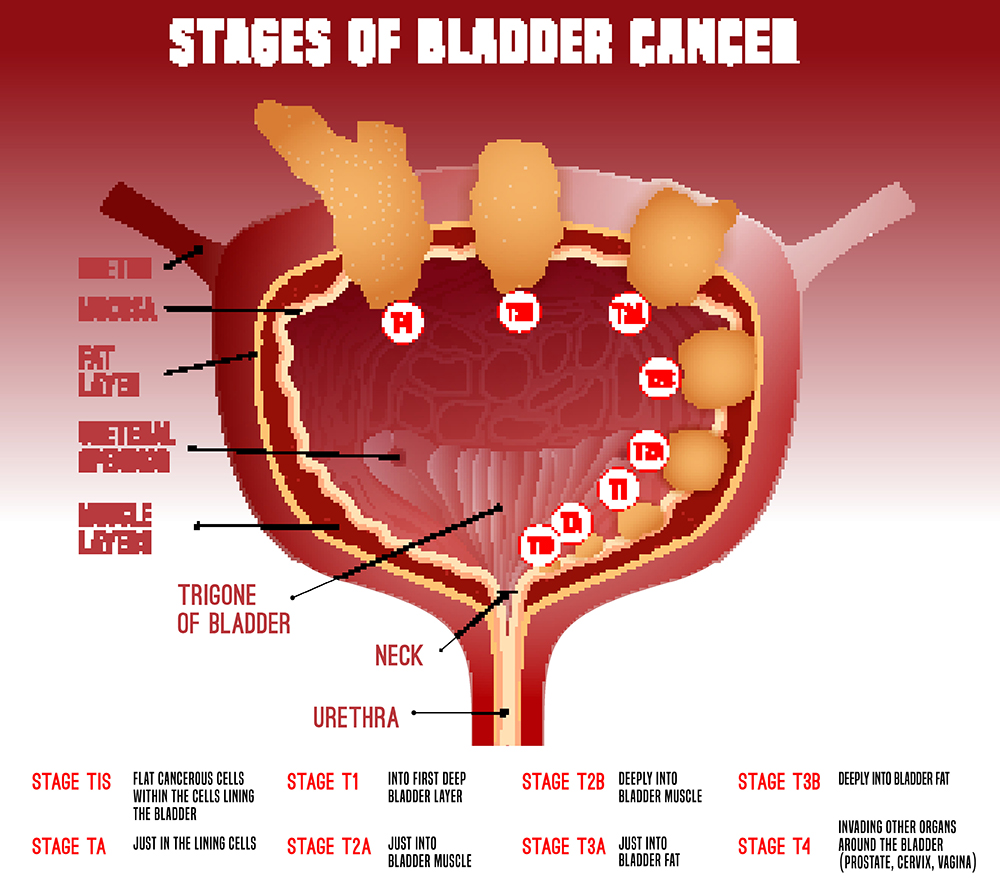Bladder cancer typically affect older adults and is one of the most common cancers, about 68,000 men & women are diagnosed each year.
The bladder is a hollow organ that serves as a reservoir for your urine. Once it is full, urine is expelled and the bladder deflates, similar to a balloon. Bladder cancer is an abnormal growth of the urothelial cells (the cells that line the inside of your bladder wall). There are two general stages of bladder cancer, superficial and muscle invasive. In additional, there are two grades of bladder cancer, low grade and high grade diseases. The treatment management for bladder cancer will be dependent on pathological finding of the grade and stage.




